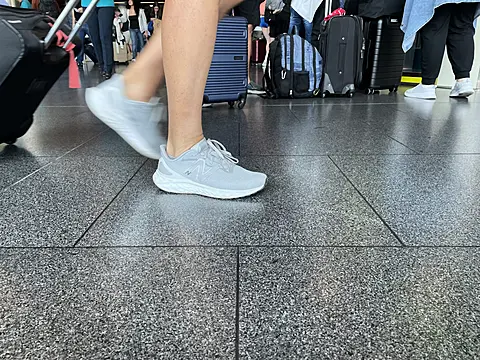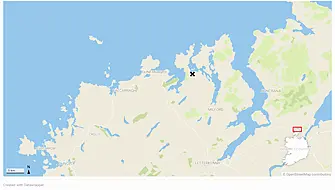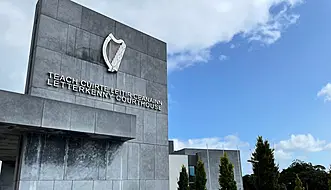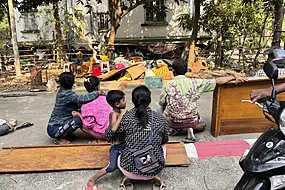A new study has shown that one in every 14 individuals who report a rape or sexual assault at specialist health clinics in Ireland suffered sexual violence while travelling abroad.
The findings of the research have prompted doctors working in the country’s six Sexual Assault Treatment Units (SATUs) to urge people who experience sexual violence while outside Ireland to immediately seek medical attention as well as appropriate follow-up care upon returning home.
The research showed seven per cent of all people who attended a SATU between 2017 and 2023 had disclosed an incident of sexual violence that had occurred in another country.
It also revealed that the annual number of cases of sexual assault reported happening outside Ireland has grown steadily each year (excluding 2020 and 2021 due to the pandemic) from 55 in 2017 to 126 last year – an increase of 129 per cent.
An analysis of the six SATU centres in Dublin, Cork, Waterford, Mullingar, Galway, and Letterkenny over the seven-year period showed 443 cases out of 6,447 attendances had recorded a sexual assault taking place outside of Ireland.
A total of 66 different countries were listed by people who attended SATUs with approximately 50 per cent of cases having occurred on continental Europe.
The UK was the second main location, accounting for 19 per cent of reported sexual assaults followed by Africa (17.8 per cent), North America (6.1 per cent), Australasia (3.4 per cent), the Middle East (2.0 per cent) and Central/South America (1.8 per cent).
The study, which is published in the International Journal of Legal Medicine, found the average age of the person reporting such cases was 26.6 years with females accounting for just over 90 per cent of the total.
The largest single age group affected by what are categorised as “international cases” were 18-25 year-olds who represented 43 per centof the total.
Three out of 10 individuals reporting having experienced sexual violence abroad were either in school or third-level education.
Irish citizens represented two-thirds of all international cases with African nationalities accounting for 17 per cent of the total.
Almost a quarter of all cases attended a SATU in July or August.
The study found that 38 per cent of individuals attended a SATU within a week of the incident with 24 per cent seeking assistance between seven days and one month after the sexual assault.
Just under 30 per cent of cases of someone experiencing sexual assault while abroad was reported over a month after the incident, while eight per cent of cases were described as presenting after long-term abuse or prostitution.
As only a small proportion of individuals attended a SATU within a week of the incident, most were outside the timeframe for the collection of DNA evidence, toxicology sampling, emergency contraception and HIV post-exposure prophylaxis, if they had not received care prior to returning home.
More than seven out of 10 international cases attended a SATU for a health check, while of the remainder 26 per cent sought a forensic examination including 17 per cent who were accompanied by a garda.
The researchers said such a trend was encouraging as people were seeking appropriate screening and utilising specific post-sexual assault services which were essential for infection detection and treatment.
According to the study, individuals who suffered sexual violence abroad are significantly less likely to disclose having taken drugs in the 24 hours before the incident or being assaulted in the assailant’s home.
However, it said there is also a significant number of cases where there was a concern that people have been the subject of a drug-facilitated sexual assault, such as someone having their drink spiked.
Individuals involved in international cases are also significantly more likely to have been assaulted by a stranger or someone they have known for less than 24 hours.
The analysis revealed that individuals were also significantly more likely to be involved in a multiple assailant assault when outside Ireland as well as being sexually assaulted in locations such as hotels or hostels.
The study found there was no significant statistical difference in alcohol consumption levels or prevalence of assaults outdoors between international and domestic cases.
The study by academics and medical staff from SATUs noted that international travellers who experience sexual assault may face unique challenges including isolation from social and family supports, language barriers and absence of familiarity with local forensic and sexual assault health services.
According to the Department of Foreign Affairs, its embassies and consulates had responded to 125 reports of sexual assaults on Irish citizens while abroad between 2017 and 2023.
However, the study said there was still “a glaring lack of research and data addressing the frequency and circumstances of these incidents.”
The authors noted that the majority of the incidents which were reported as occurring abroad had taken place in non-English speaking countries.
“The vulnerability of international travellers is also highlighted by the fact that the perpetrator was significantly more likely to be a stranger or a recent acquaintance compared to cases of assault in Ireland,” they added.
The study observed that lifestyle behaviours that may be more frequently adopted by travellers such as alcohol consumption and recreational substance misuse, may impact a person’s judgement and vulnerability while also reducing their ability to recognise and avoid dangerous situations.
It claimed the anonymity and transient nature of travel may also embolden potential offenders who may perceive tourists as “easy targets” due to their unfamiliarity with the local area and customs as well as their potential reluctance to report crimes to local authorities.
The study said its findings highlighted the importance of education and prevention and recommended that pre-travel advice should focus as much on personal safety as the risk from infectious diseases.
“Routine pre-travel advice, perhaps particularly for novice travellers, should also include discussion around personal safety and protection as well as the prevention of sexual violence,” it added.
The researchers said people should also be encouraged to report crime to their embassy and local police if still abroad.
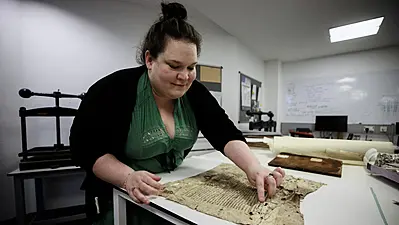
However, they also noted that criminal justice systems may have different guidelines on whether evidence collected in one country can be used or presented in another.
For that reason, they recommend that a forensic examination should be availed of locally where the incident occurred if possible.
The study’s authors said the importance of SATU care for those who have been sexually assaulted while abroad cannot be overstated.
If you have been affected by any of the issues raised in this article, you can call the national 24-hour Rape Crisis Helpline at 1800-77 8888, access text service and webchat options at drcc.ie/services/helpline/ or visit Rape Crisis Help.
